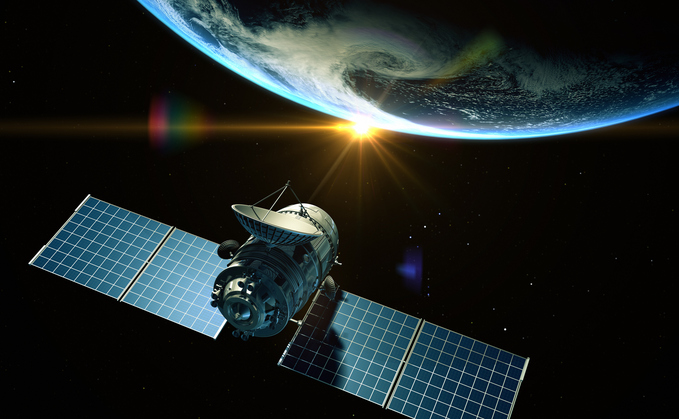UKSA Funding Research into Pioneering Satellite Refueling Tech
8th Nov 2023
The UK government announced on 7th November that the UK Space Agency is backing research into satellite refuelling. This research could help in extending the lifespan of satellites and prevent additional debris from accumulating in space.
This announcement precedes the upcoming UK Space Conference, set to be held from 21st to 23rd November at ICC Belfast in Northern Ireland. The event will consist of space innovators from a variety of prominent sectors envisioning the opportunities of space exploration.
The UK Space Agency Offers £2 Million for Feasibility Studies on Satellite Refueling Missions
A total of £2 million is on offer for feasibility research studies that showcase the capacity to refuel and facilitate a UK-based national mission aimed at debris removal. Moreover, the studies may also help explore possibilities for refuelling a commercial satellite.
The press release underlines the crucial role of space services in daily life and stresses the importance of preserving outer space for generations to come. As stated in the announcement, there are millions of unrequired space objects orbiting planet Earth, including old satellites, astronauts’ tools, and even speckles of paint. Nearly 37,000 of these space debris objects are larger than 10 centimetres, and approximately 130 million are smaller than one centimetre. Due to their speed, these objects can potentially damage operational satellites.
The UK Space Agency, as a part of its efforts to ensure the overall conservation of outer space, is developing competencies in this field and demonstrating leadership in promoting sustainable space missions. Among the Agency’s many initiatives is a national mission for debris removal, with an emphasis on satellite refuelling, set to commence in 2026.
The UK Space Agency Invites Bids To Develop Feasibility Studies for Debris Removal Mission
With the continuously decreasing costs of satellite launches and the emergence of modern, innovative technologies, including satellites capable of docking with others and accomplishing tasks while being refuelled, the mission is seemingly gaining momentum. The Agency is seeking bids from organizations based in the UK to create feasibility studies that will aid in the advancement of future technologies.
Head of Space Sustainability at the UK Space Agency, Ray Fielding, noted,
“This is an exciting opportunity for the UK space sector. In-orbit servicing is expected to be a key tool in ensuring the long-term sustainability of the outer space environment, so these refuelling studies will support our desire to make satellite operation a lot more sustainable and demonstrate UK leadership in tackling the increasing risks caused by space debris.”
George Freeman, the Minister of State at the Department of Science, Innovation and Technology, expressed concern about the growing danger posed by the accumulation of space debris in outer space, calling for urgent action. He stated;
“Millions of pieces of space debris and 3,000 redundant satellites pose an increasing threat to the satellite economy we now rely on daily – from telecomms to navigation, air traffic control and climate science. So it is vital that we act.”
“This new £2 million UK Space Agency programme will help to develop ways to refuel inactive satellites in space. UK businesses like Astroscale and ClearSpace developing in-flight refuelling, maintenance and other satellite servicing are key to reducing space debris, boosting space resilience and ensuring a vibrant space service economy.”
Co-Chair of UKspace In-orbit Service and Manufacturing Working Group, Richard Lowe, remarked, “Satellites provide huge economic benefit for people here on Earth – but they’re currently limited to one tank of fuel! In-orbit refuelling is a key technology that can extend the life of satellites. It can also enable the development of more capable infrastructure in space and help us to reduce in-orbit debris. This investment paves the way for space services that deliver even more value than today in a much more sustainable way.”







Thank you for your comment! It will be visible on the site after moderation.